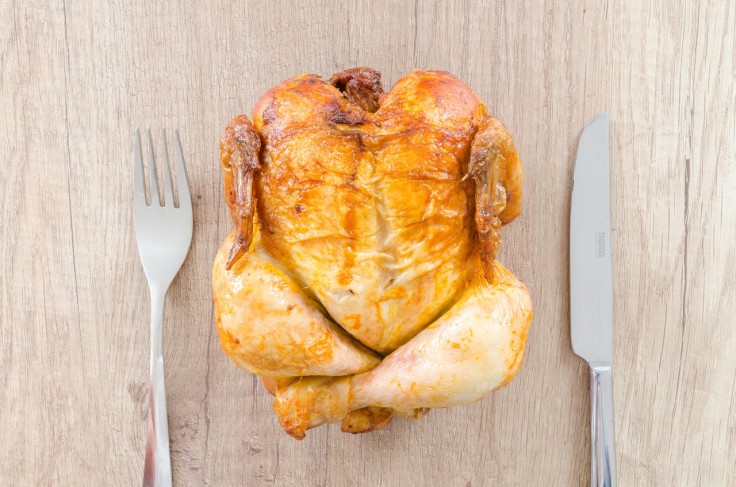
Turkey is not just the Thanksgiving table's most iconic element- it's also large, costly, and time-consuming to prepare. So why do you leave something to chance? Whether you are slow-cooking your turkey, roasting it entirely, or deep-frying it in your backyard, experts say that this sought-after fowl meat is being properly prepared.
Grocery shopping and preparations for the recipe may be well ahead of Thanksgiving, but several health agencies have banded together to deliver a clear rule before the holiday: do not wash the turkey before cooking.
Amy Keating, a nutritionist from Consumer Reporters, said in a food safety memo last week that you can't wash away bacteria by rinsing the turkey with water. Instead, experts recommend that you open the plastic wrap and drain any liquid into the sink before throwing out the packaging. They then suggest patting the turkey dry with paper towels and, thoroughly washing your hands and utensils with hot water and soap.
Washing raw poultry - and even beef, pork, lamb or veal - is not recommended before cooking since juices and bacteria in raw meat can be transferred to other products, utensils and surfaces according to the USDA Food Safety and Inspection Service.
Washing cannot remove some bacteria that are massively attached to the meat. You might also fail in cleaning the kitchen utensils and surfaces, leaving the spread of bacterial which is openly possible for cross-contamination and risking your own health.
A new experiment conducted by the USDA revealed that 60% of kitchen sinks were contaminated after handling raw turkey. This means that if you choose to prepare it in the sink, you must absolutely clean and sanitize all the surfaces and utensils before moving on to the next food preparations.
The Centers for Disease Control and Prevention (CDC) tweeted back in May for people to stop washing chicken and other poultry. The food safety advice includes tips on how to safely thaw a turkey and recommendations that any stuffing should be baked outside the body of any poultry.
Drusilla Banks, a University of Illinois Extension food sanitation instructor, explained to The Associated Press that if your mother and your grandmother did it, and suddenly the government advised you not to wash your turkey, then you must think twice and adjust.
Banks added that the advice from the USDA to not wash raw poultry is relatively new and perhaps has not been widely accepted because it goes against the traditional belief that washing makes things clean.
However, germs that carry diseases are usually found in the guts of poultry and even livestock. Thus, it is really possible that two common causes of salmonella, campylobacter, and other food poisoning are from the turkey or dirty meat. This was confirmed by Mindy Brashears, a USDA Food Safety official.
Benjamin Chapman, a study author and food safety expert at North Carolina State University, said the practice to wash raw poultry dates decades back when people depended more on visual signs to spot dirt on a poultry or game. So, to make sure that the bird is 100% cooked experts suggested the use of a thermometer to check that the thickest parts of the meat have reached at least 165 degrees.
RELATED: NASA is Preparing Tasty Turkey with The Longest Expiration Date for 2023's Thanksgiving Dinner on Mars
© 2025 University Herald, All rights reserved. Do not reproduce without permission.








